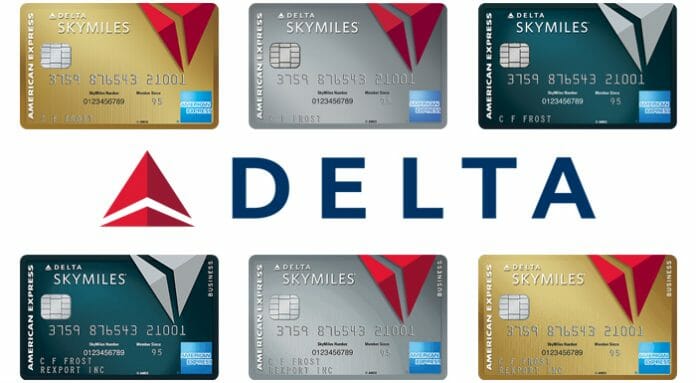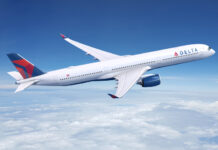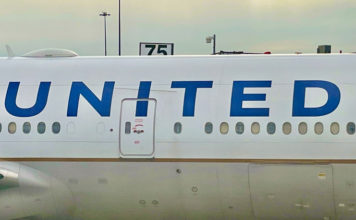
TravelingForMiles.com may receive commission from card issuers. Some or all of the card offers that appear on TravelingForMiles.com are from advertisers and may impact how and where card products appear on the site. TravelingForMiles.com does not include all card companies or all available card offers.
Some links to products and travel providers on this website will earn Traveling For Miles a commission which helps contribute to the running of the site – I’m very grateful to anyone who uses these links but their use is entirely optional. The compensation does not impact how and where products appear on this site and does not impact reviews that are published.
The introduction of Basic Economy fares by the US legacy carriers has ushered in a new era of fare unbundling and benefit stripping as the airlines attempt to nickel and dime as many passengers as is physically possible.
The degree to which Basic Economy fares strip out passenger benefits varies from airline to airline but they all inconvenience passengers in one way or another. Holding airline status or the right credit card can go a long way to mitigating some of these inconveniences and making the whole Basic Economy experience a little more tolerable.
In this series of 3 posts (one for each of the US legacy airlines) I’m going to take a look at which credit cards offer a way around some of the more inconvenient Basic Economy rules the airlines have introduced.
Posts in this series:
In this post I’m taking a look at Delta

Delta Basic Economy
I don’t think I’ll have too many people disagreeing with me when I say that Delta’s Basic Economy rules are the least punishing of the three US legacy airlines. This may be because Delta has had a Basic Economy product for over 5 years (and so has had time to introduce it properly) while United and American are still newbies to the world of Basic Economy.
With Delta’s Basic Economy fares the standard rules are:
- Two carry-on bag allowed: One regular carry-on which can be placed in an overhead bin and a personal item which must fit under the seat ahead of you.
- No checked baggage allowance, even on international routes.
- Basic Economy fares are not eligible for upgrades
- Passengers can choose seats at check-in but not before
- No flight changes or refunds allowed
- Passengers board in the final zone
- Fares earn Medallion Qualifying Miles & Medallion Qualifying dollars at the regular rate
- Fares earn redeemable miles in the normal way
Because Delta’s Basic Economy rules give flyers a normal carry-on allowance (while American & United restrict flyers to one personal item) it may seem like there’s little to be gained by having a Delta co-branded credit card….but that’s not necessarily the case.

If you have Delta Medallion status you get to keep your priority boarding benefit and your checked baggage benefit but, if you don’t have status, you could have a problem.
Yes, Delta give passengers with Basic Economy fares a full hand baggage allowance but those passengers still have to board in the last zone….and that means that there may not be any space in the overhead bins for a carry on.
No space in the overhead bins means a gate-checked bag and that defeats one of the benefits of traveling with hand baggage.
A number of Delta Credit cards come with two very useful benefits as part of the package they offer:
- Priority boarding (so you’re much more likely to find space in the overhead bins)
- A checked luggage allowance (most useful when traveling on international Basic Economy fares)
This makes the co-branded credit cards an interesting proposition.
Delta Co-Branded Credit Cards
Passengers who hold the following credit cards get priority boarding and a free checked bag too:
Personal Credit Cards
American Express Gold Delta SkyMiles Credit Card – $0 introductory annual fee for the first year, then $95

American Express Platinum Delta SkyMiles Credit Card – $195 Annual Fee ($250 if application is received on or after 1/30/2020)

American Express Delta Reserve Credit Card – $450 Annual Fee ($550 if application is received on or after 1/30/2020)

Business Credit Cards
American Express Gold Delta SkyMiles Business Credit Card – $0 introductory annual fee for the first year, then $95.

American Express Platinum Delta SkyMiles Business Credit Card – $195 Annual Fee ($250 if application is received on or after 1/30/2020)

American Express Delta Reserve for Business Credit Card – $450 Annual Fee ($550 if application is received on or after 1/30/2020)

It’s important to note that it’s only the primary cardholder (not additional cardholders) who get priority boarding and a checked baggage allowance but, per Amex:
Priority Boarding is also available for passengers traveling in the same reservation as the Basic Card Member. Maximum nine passengers per reservation receive the Priority Boarding. Priority Boarding will only be available on Delta and Delta Connection carrier operated flights. Delta does not offer Priority Boarding on Delta Shuttle® flights.
And:
[Baggage] Fee waiver also available for passengers traveling in the same reservation as the Basic Card Member. Maximum nine waivers per reservation.
So all of these credit cards get the primary cardholder and up to nine other passengers (on the same reservation as the primary cardholder) priority boarding and a free checked bag.
If you don’t have status with Delta that’s not bad for something you can get from just $95/year.
Thoughts
Because Delta’s Basic Economy rules aren’t as draconian as those of American or United it’s not quite as important for passengers (who book Basic Economy) to have a co-branded credit card….but I still think it’s a good idea.
I’m not going to say which of the above credit cards is the one to get as they all offer different benefits on top of those that circumvent some of the Basic Economy rules…but if you fly with Delta with any kind of frequency you should probably have one of these credit cards in your wallet.
When deciding which of these cards is best for you make sure you consider the annual fee and how often you actually expect to use the cards benefits – no point in splashing out on a $450/year card if all you really need is priority boarding and a free checked bag.
Bear in mind that you do not have to use the Delta co-branded credit card to purchase your fare in order to be able to take advantage of the dispensations the credit card offers – simply holding the credit card is enough to ensure that you and your traveling companions are covered by the dispensations.



![The ideal 4 card American Express Membership Rewards team [Updated] a glass door with a picture of a man](https://travelingformiles.com/wp-content/uploads/2021/06/Amex-Centurion-Lounge-SFO-featured-741-218x150.jpg)



![The ideal 4 card American Express Membership Rewards team [Updated] a glass door with a picture of a man](https://travelingformiles.com/wp-content/uploads/2021/06/Amex-Centurion-Lounge-SFO-featured-741-356x220.jpg)








